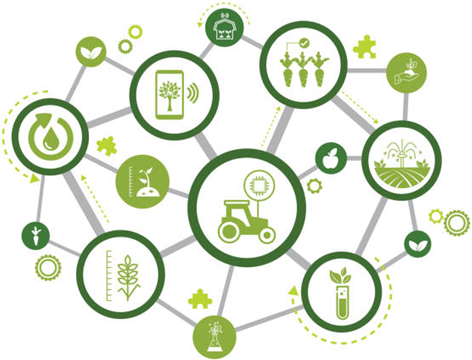
I am a member of the Applied Intelligent Engineering Systems (AIES) research group in the Department of Engineering under the Faculty of Agriculture at Dalhousie University. The relevance of our team’s work has been further been demonstrated in a recent article by The Guardian called “Star Trek for potatoes: can a hi-tech farm save french fries from the climate crisis?” This article reiterates the need to change our current agricultural practices now in order to achieve sustainability sooner rather than later.
Smart farming techniques have proven to offer benefits both economically and environmentally. For example, machinery guidance when spraying for pests in crop fields through the aid of pre-uploaded prescription maps shows that pesticide savings could range between 50-80%. Preliminary results from field scouting conducted at McCain’s Farm of the Future shows that insecticide savings could even be higher than 80% if field scouting was automated. Scout automation is one area that interviewed farmers in Florenceville, New Brunswick are interested in. One reason for this is the time associated with the manual scouting exercise and labour demand required prior to making a spraying decision.
Our current detection systems show promising results – with precise locations being saved for reference and/or verification. The pesticide savings brought about by reduced application have a direct impact on not only the environment but also preserves water resources. Although smart farming brings about farming efficiency, costs associated with technology investments still prevail. Obtained field data may still require further processing and interpretation prior to a farming operation. To tackle such problems, my team is working closely with various stakeholders to minimise any possible limitations that technology introduction may bring about. Furthermore, most smart farming techniques happen to be region specific. Our systems are modelled for general purpose applications such as spot spraying and/or spot fertilizer applications. This makes them region independent, but case studies may still be required to test suitability form region to region. In the Guardian article quoted above, I mention that we are developing smart farming systems that could easily be retrofitted to existing machines – a cost-cutting measure for future adoption for farmers.
Perhaps the greatest benefit from smart farming techniques is reduced wastage. Farmers are willing to only apply pesticides or fertilizers only where they are required if their crop yields are not compromised. The risk of yield losses is one of the main reasons smart farming adoptions have been slow. In addition, most techniques are still in the trial phase and may take multiple years to fully deploy but have already shown promising signs towards smart farming development. I believe technology advancements in agriculture will only make farming more efficient going forward. The stakeholder interest, particularly from the farmers, has been encouraging and will likely continue going forward.
Image source: Rattana Srinusen via iStock










